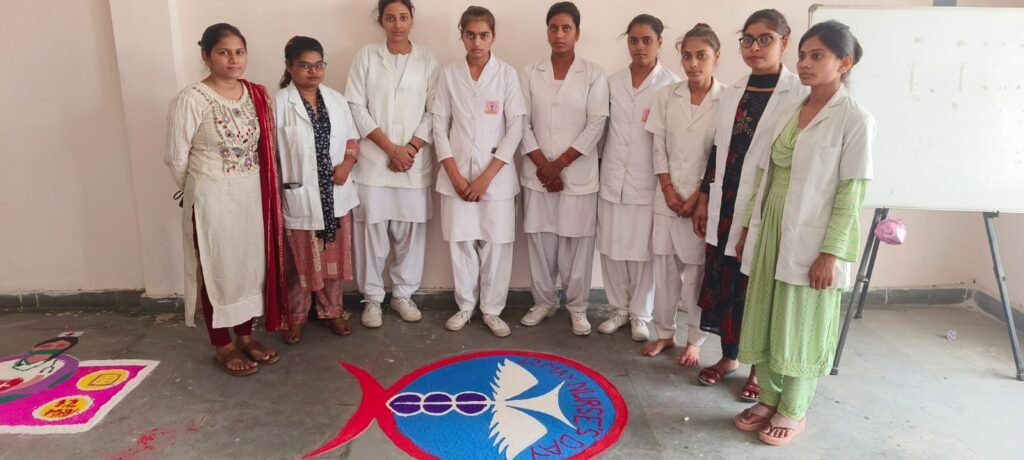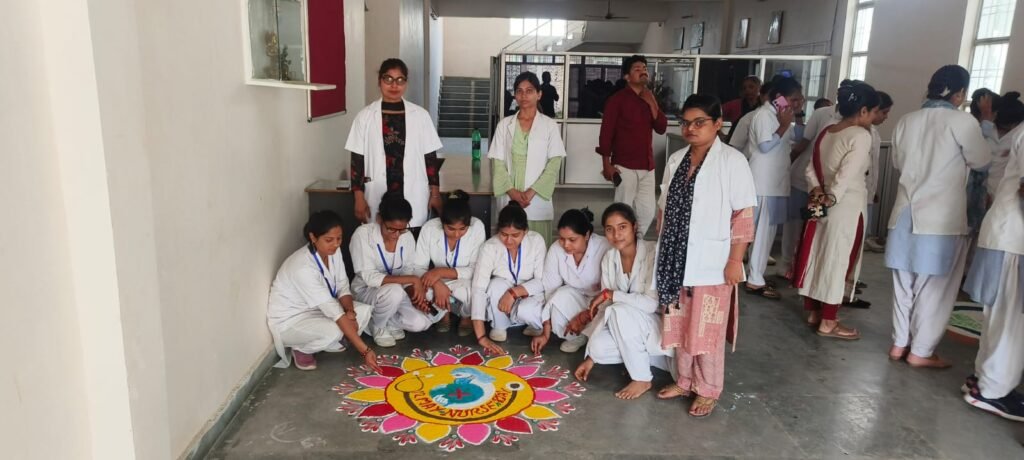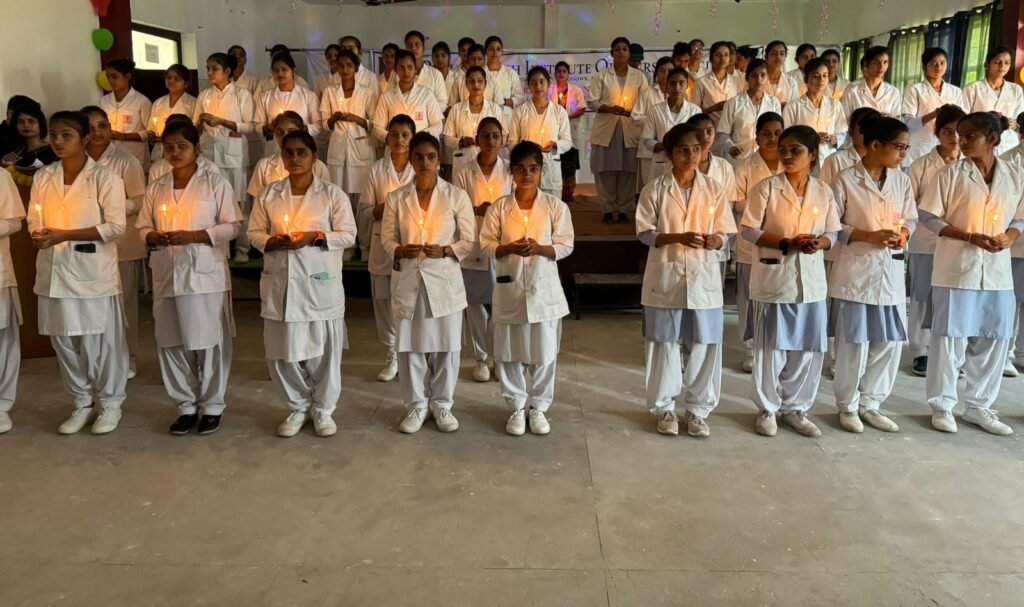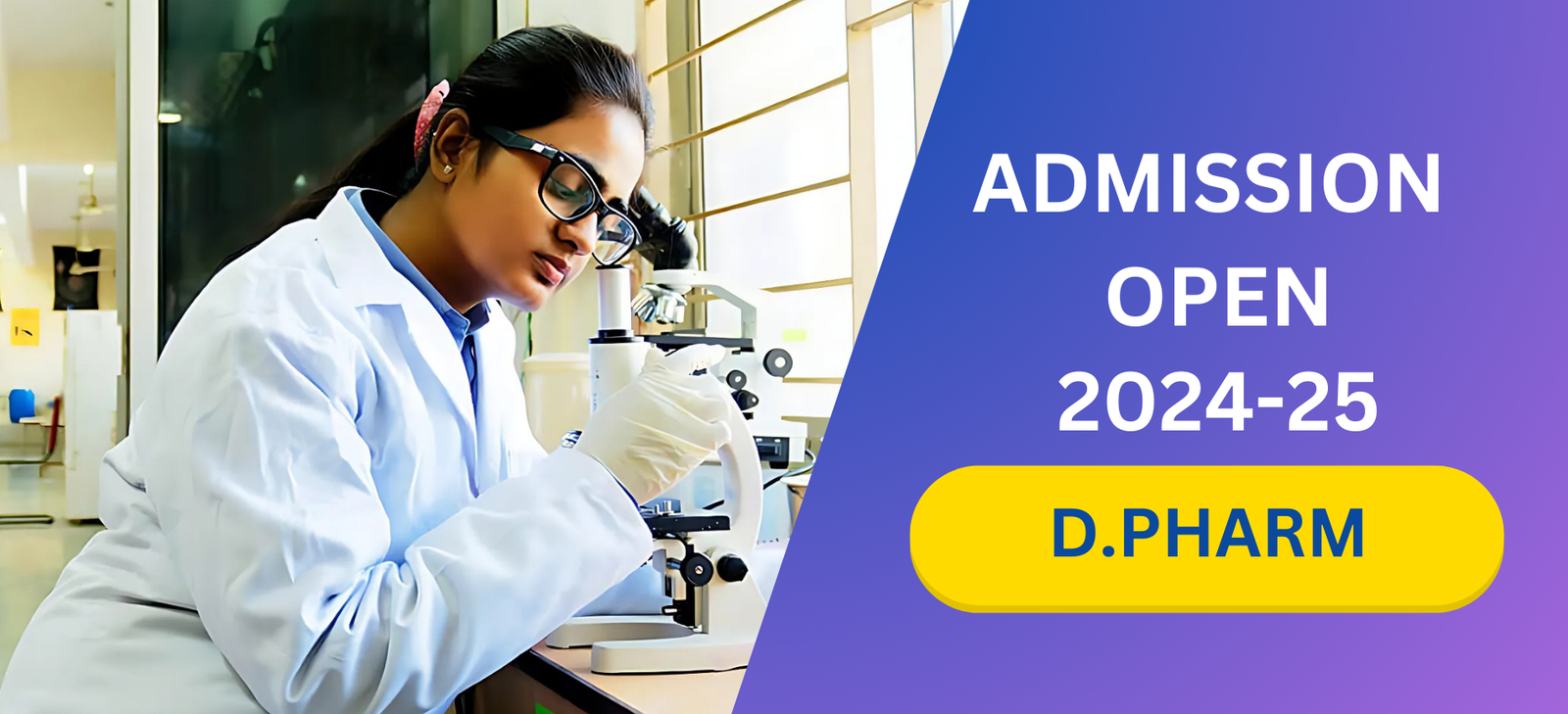
D.Pharm College in Sitapur
Overview
Welcome to the Diploma in Pharmacy (D.Pharma) program at Renu Mahesh Sewa Sanstha. Our D.Pharma program is crafted to provide students with the essential knowledge and practical skills required to excel in the pharmaceutical field. Here’s an in-depth overview of our program
Course Structure
Duration:
- Two Years: The D.Pharma program is structured over two years, divided into four semesters.
Curriculum:
- Core Subjects: Pharmaceutical Chemistry, Pharmacology, Pharmacognosy, Pharmaceutics, and Hospital & Clinical Pharmacy.
- Practical Training: Hands-on training in well-equipped laboratories, internships in hospitals and community pharmacies.
- Workshops and Seminars: Regular workshops and seminars with industry experts to stay updated on the latest advancements in pharmacy.
Key Benefits
Comprehensive Education
- In-Depth Knowledge: Gain a thorough understanding of pharmaceutical sciences, including drug formulation, pharmacology, and therapeutic applications.
- Laboratory Skills: Develop practical skills through extensive laboratory work, ensuring you are well-prepared for the professional environment.
Hands-On Experience
- Practical Training: Engage in practical training sessions that include compounding and dispensing medications, pharmaceutical calculations, and quality control.
- Internships: Participate in internships at hospitals and community pharmacies to gain real-world experience and insights into pharmacy practice.
Professional Development
- Career Opportunities: Prepare for a rewarding career in various sectors such as community pharmacies, hospital pharmacies, pharmaceutical companies, and regulatory agencies.
- Continuous Learning: Access ongoing professional development opportunities to enhance your skills and stay current in the rapidly evolving pharmaceutical field.
Year 1
Semester 1
Pharmaceutics – I
- Introduction to pharmacy, dosage forms, and dispensing
- Pharmaceutical calculations and prescription handling
Pharmaceutical Chemistry – I
- Basics of inorganic pharmaceutical chemistry
- Identification tests for ions and radicals
Pharmacognosy
- Study of medicinal plants and natural products
- Techniques for extraction and analysis of active constituents
Biochemistry and Clinical Pathology
- Structure and function of biomolecules
- Enzyme function, clinical pathology, and diagnostic tests
Semester 2
Human Anatomy and Physiology
- Structure and function of the human body
- Body systems and their interrelationships
Health Education and Community Pharmacy
- Principles of health education and promotion
- Role of pharmacists in community health
Pharmaceutics – II
- Advanced dosage forms and drug delivery systems
- Pharmaceutical incompatibilities and stability studies
Pharmaceutical Chemistry – II
- Organic chemistry and medicinal chemistry
- Synthesis and properties of organic compounds
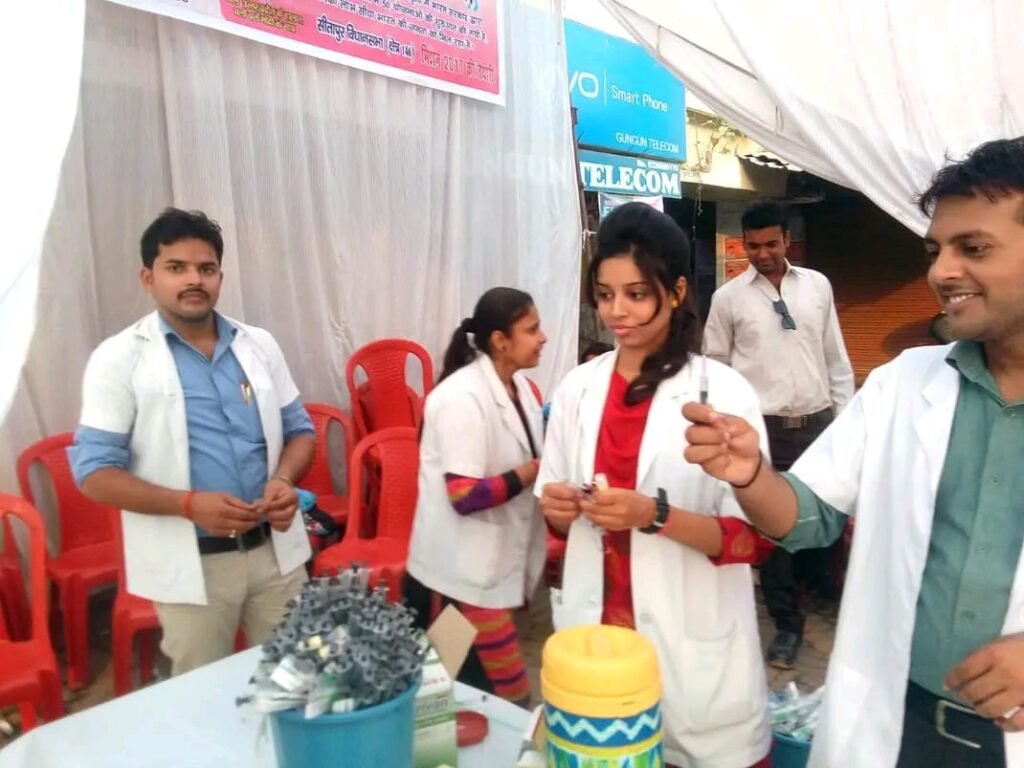
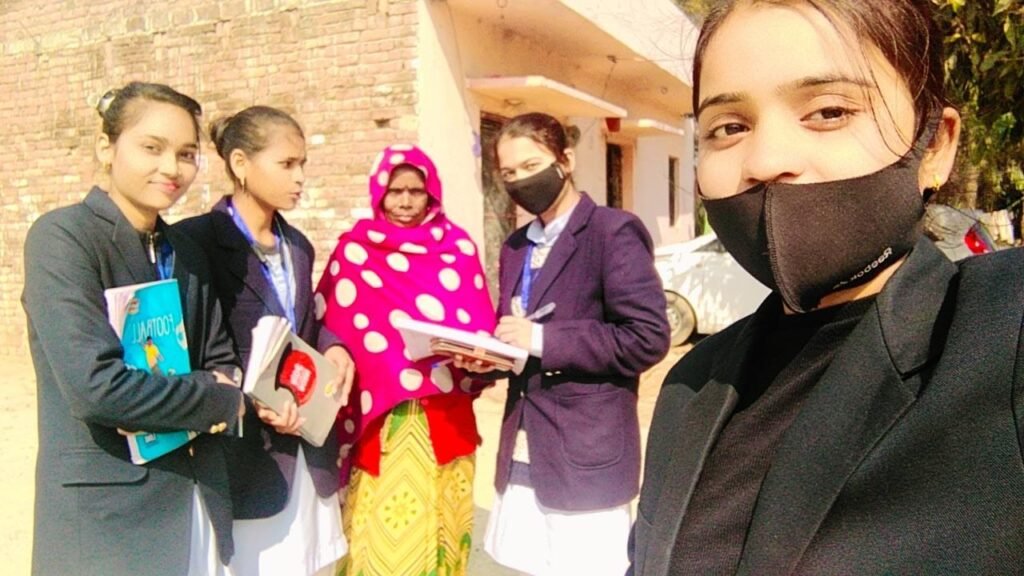
Year 2
Semester 3
Pharmacology and Toxicology
- Drug actions, mechanisms, and therapeutic uses
- Adverse drug reactions, toxicity, and drug interactions
Pharmaceutical Jurisprudence
- Laws and regulations governing pharmacy practice
- Ethical considerations in pharmacy
Hospital and Clinical Pharmacy
- Role of pharmacists in hospitals
- Drug distribution systems and clinical pharmacy practices
Pharmaceutics – III
- Cosmeticology and herbal drug technology
- Formulation and evaluation of cosmetics and herbal products
Semester 4
Pharmaceutical Chemistry – III
- Biochemistry and clinical biochemistry
- Analysis of biological fluids and interpretation of results
Pharmaceutical Management
- Basics of management and marketing in pharmacy
- Inventory control and business practices in pharmacy
Pharmaceutical Biotechnology
- Fundamentals of biotechnology in pharmaceuticals
- Techniques in genetic engineering and recombinant DNA technology
Practical: Internship and Training
- Practical training in community and hospital pharmacies
- Application of theoretical knowledge in real-world settings
Additional Features
- Workshops and Seminars: Regular sessions with industry experts on the latest pharmaceutical advancements and practices.
- Field Visits: Opportunities to observe and participate in pharmaceutical industry settings and healthcare facilities.
- Peer Learning: Collaborative projects and group activities to foster teamwork and enhance learning.
Admission Requirements
- Educational Qualification: Candidates must have completed their higher secondary education (10+2) with a focus on science subjects.
- Entrance Examination: Admission may require passing an entrance examination and an interview.
